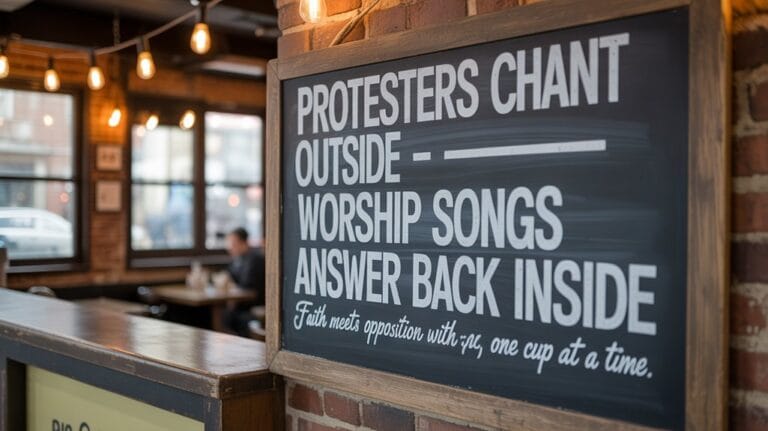Since opening in June 2023, the café has faced protests marked by signs like “God is a f—” and accusations of exploiting homeless labor. The café is part of Project Revive, a program assisting homeless individuals through job training and faith-based mentorship. Graffiti and broken windows have followed, but staff answer with worship songs and prayer sessions. Coffee shops globally serve as social hubs for community interaction and support, fostering a strong sense of local business identity.
“We’re here to reflect Jesus’ peace, not fight,” Smith said, calling their approach a form of peaceful resistance. Volunteers clean up damage while continuing daily services, like handing out free coffee to those in need.
Protesters argue the café represents religious intolerance, calling for its closure as part of a broader push against groups they see as anti-LGBTQ. The café recently updated its website to clarify Biblical teachings on sexuality after opponents mischaracterized their stance. Supporters, however, praise its community work. Church members donate funds and time to keep the shop running, countering boycott efforts.
Meanwhile, online debates flare about religious freedom versus LGBTQ rights, with some locals criticizing the protests as harsh.
No lawsuits have been filed, but tensions highlight growing clashes over faith and identity. The Denver Communists say their protests aim to challenge “Christian dictatorship,” while Smith insists no one is turned away for their beliefs—or lifestyle. The café’s doors stay open, staffed by unpaid helpers and funded by donations.
Though financial strain grows from ongoing protests, the shop pushes ahead. Supporters buy extra coffee or drop off supplies, determined to keep its outreach alive.
Smith admits the future’s uncertain but says quitting isn’t an option. For now, prayers drown out chants outside, as the café tries to serve its version of love—one cup at a time.

